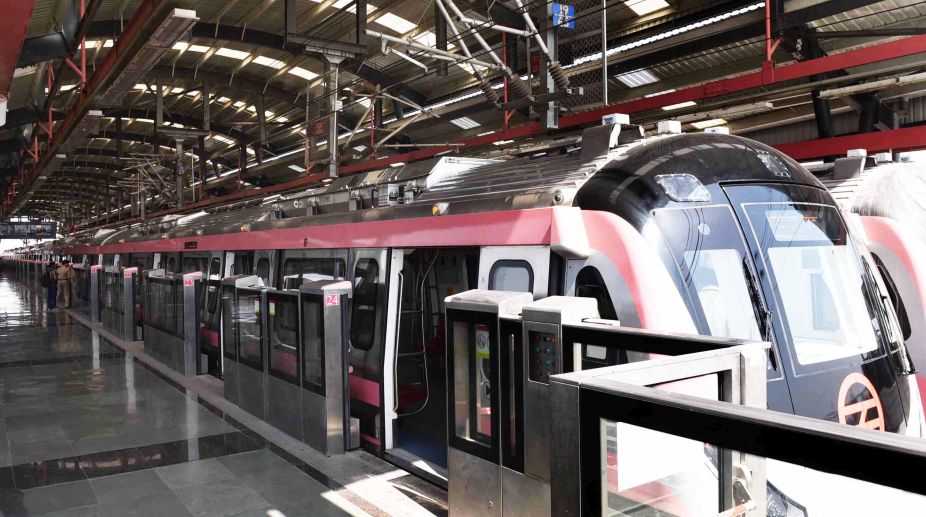The over 20 km-long Park-Durgabai Deshmukh South Campus section of Delhi Metro Rail Corporation’s Pink Line was formally inaugurated by Union Minister for Housing and Urban Affairs (Independent Charge) Hardeep Singh Puri and Delhi Chief Minister Arvind Kejriwal from the Metro Bhawan on Wednesday.
Here is all you need to know about the addition to the already substantial Metro network:
Advertisement
The over 20 km-long stretch will connect South and North West Delhi along the Ring Road.
This section, which has 12 stations, is part of the 59 km-long Majlis Park-Shiv Vihar corridor (Pink Line Line 7) of Delhi Metro’s Phase III. It is the longest metro line till date. The entire corridor will open by June 2018.
Gallery | Delhi Metro’s Pink Line to be inaugurated today
With the opening of the 21.56 km-long section, the Delhi Metro’s operational network will expand to nearly 252 km.
The end-to-end travel time on this section of the Pink Line would be 34 minutes.
The stations are — Majlis Park, Azadpur, Shalimar Bagh, Netaji Subhash Place, Shakurpur, Punjabi Bagh West, ESI Hospital, Rajouri Garden, Mayapuri, Naraina Vihar, Delhi Cantt and Durgabai Deshmukh South Campus.
All the stations have platform-screen doors.
Azadpur Station (with Yellow Line) is one of the three interchange stations on the Pink Line stretch, the other two being, Netaji Subhash Place (with Red Line) and Rajouri Garden (Blue Line).
Out of the 12 stations, eight are elevated and the rest underground. As with the recently-opened Magenta Line, broad-sized coaches from the new rolling stock, will ply on the standard gauge Pink Line.
Metro’s new generation trains, which can run without drivers, will also run on this section where an advanced Communication Based Train Control (CBTC) signalling technology that will facilitate the movement of trains with a frequency of 90 to 100 seconds will also be pressed into service.
However, for an initial period of two-three years, the trains will have drivers.
The average speed of the train on the line is 34 kmph and the line will have only six-coach trains, with a frequency of 90-100 seconds
A total of 19 trains will be in service on the line. Trains will also run on two shorter routes — between Durgabai Deshmukh South Campus and Shakurpur, and Majlis Park and Shakurpur stations
The 21.56 km-long corridor, once opened, will also reduce metro travel time between Dwarka 21 (Blue Line) and Rithala (Red Line) by over 16 minutes; and Rajouri Garden and Azadpur by nearly 23 minutes.
South-North campus connectivity
The new corridor will also connect the north and south campuses of the Delhi University, which can be commuted in 40 minutes.
The ticket from Vishwavidyalaya station to Durgabai Deshmukh South Campus station will cost Rs 50. While, from Majlis Park station to South Campus station, it will cost Rs 40.











